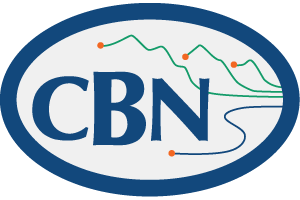
Fast, affordable Internet access for all.

Glenwood Springs was the first community in Colorado to invest in publicly owned Internet infrastructure, the Community Broadband Network (CBN), and offer services to local businesses. The community, originally named “Defiance,” was also one of the first U.S. communities to have electric lights. Their open access municipal network has improved connectivity throughout the community and helped establish robust competition in this western frontier town.
Dial-Up Just Didn’t Do It; City Steps In
Bob Farmer, Information Systems Director at Glenwood Springs, spoke with Christopher Mitchell for episode #206 of the Community Broadband Bits podcast and he shared some of the network’s history. Before community leaders chose to take matters into their own hands, Qwest (now CentuyLink) and AT&T were offering dial-up services to residents and businesses. The city approached the incumbents and asked them to make upgrades to improve local connectivity but were told by both companies that they had no plans to make improvements.
Bruce Munroe, former Director of Information Services, was interviewed in 2005 about the community's plan to invest in fiber and the incumbents' reaction. He said:
“When we started, we were told that it wouldn’t be profitable for them to provide service,” says Munroe. “But they also said ‘you can’t do it either.’ There was no interest in [pursuing] anything until we said we were going to do it.” Glenwood moved ahead anyway after its city council approved a municipal service plan based on keeping businesses in town. “We were protecting our economic base,” says Munroe, who noted that businesses were leaving because they didn’t have speedy access to the Internet.
Farmer recalls that a citizens group formed to advance the prospect of publicly owned Internet infrastructure. While a plan surfaced to offer triple-play via fiber-optic connectivity to the entire community, pushback from local fixed wireless Internet access providers and other businesses eventually led community leaders to scale back. The city chose instead to offer businesses and community anchor institutions (CAI) connectivity via an open access fiber-optic network in 2000-2001 and use the backbone to create a fixed wireless network for residential access. While a number of private wireless providers used the CBN to offer residential services, the city did not actually offer fixed wireless directly to residents until 2009. According to Farmer, they never advertised and had less than one percent of the subscriber base.

In his interview with Christopher, Farmer described some of the difficulties with the plan in a town the size of Glenwood Springs where there were already a number of wireless providers:
“[A]t that point we were directly competing with the existing wireless providers and many of them became resellers on our network”
There were a relatively high number of wireless providers offering services in Glenwood Springs - as many as seven at one time - which made the market very competitive. Farmer believes the town's population of a little less than 10,000 does not support a high number of competitors. Connectivity throughout the community is certainly better than it was before the public investment, but it has been a challenging journey, recalls Farmer.
As Farmer also noted in the interview, the open access model created problems when larger regional providers bought out smaller local ISPs. When providers on the CBN were not dedicated enough to maintain relationships with the customers they served the city felt the fallout. Customers encountered problems with the network and let their providers know, but the providers failed to promptly inform the Glenwood Springs Internet division. As a result, customers were frustrated and chose to cancel service.
Anchor institutions and businesses still connected via the fiber-optic network, but connecting included hefty installation charges. Over time, the city drastically lowered the connection charges, encouraging more businesses and institutions to connect to the CBN. Glenwood Springs has forged ahead to bring better connectivity to local businesses and CAIs and, while the city has had to contend with the problems of being one of several providers in a competitive market, the CBN has created an environment beyond one or two providers and prices are held in check.
City Savings
In addition to keeping prices reasonable for businesses and CAIs, the city is able to keep its own telecommunications costs down by self-provisioning. Farmer estimates that Glenwood Springs saves approximately $140,000 per year because it uses the CBN rather than obtaining comparable services from a private provider. He adds that, because the network adds redundancy, savings may actually be much higher; with a network that doesn't go down, efficiency is always optimal.
There are 25 municipal facilities connected to the CBN, including wastewater, water treatment, and electric department facilities. Glenwood Springs also uses the CBN to connect fires stations, the Community Center, and its Municipal Operations Center.

Just as importantly, Glenwood Springs is able to budget because their costs are predictable. When local communities depend on big private providers for services, they are at a disadvantage because those corporations have the ability to increase rates and communities have little say in the matter. If a community has no alternate provider, they have no leverage to negotiate.
In Martin County, Florida, for example, the franchise agreement between the county and Time Warner Cable was coming to a close. The ISP planned to raise rates by more than 800 percent. Rather than submit to corporate piracy, the community partnered with the school district and invested in their own Internet infrastructure. In addition to taking control of their own connectivity decisions, Martin County and its parner are saving millions each year.
A Plan To Expand, A Vote To Reclam Authority
By 2008, the municipal electric utility had invested approximately $3.5 million to deploy the fiber system for communications purposes and the electric system. The city began to consider using the network for more than just business connectivity, possibly offering services directly to residents.
At the time, Public Works Director Robin Millyard said, “It’s like having a Ferrari in a garage on a gravel road.” The City Manager noted that the network was, “[A] tremendous asset available to this community that’s being underutilized.”
The city considered the possibility of selling off the wireless network and expanding the existing fiber-optic network to serve all businesses and households in the community in order to offer triple-play. The city had already commissioned a feasibility study to look at the plan. City leaders anticipated funding the $12 million expansion with a revenue bond.
By 2008, Colorado's SB 152 had passed the state legislature, so before the city could expand their offerings, the voters had to reclaim local authority through referendum. In April, voters passed the measure 707 to 605 in the single-issue election. The municipality now had the legal option to expand its network. If any future expansion required issuing a revenue bond or some other form of bond, the community would need to vote again to authorize the financing. After several months of study, however, the City Council ultimately chose not to pursue such a big project.
Instead, Glenwood Springs decided to begin providing direct Internet access to businesses, rather than only offering the fiber infrastructure on which third party providers could offer services to commercial subscribers. By working directly with commercial customers, the city was able to improve its reputation and take on more customers. The demand for services from the city has risen approximately 20 percent each year. He attributes the increased interest in the city’s efforts in part to better customer service.
The CBN Today And Tomorrow
Businesses can sign up for one of three tiers, with all speeds symmetrical so upload is as fast as download, a critical component of business Internet access.
 All tiers include a public IP address, no data cap limit, and no long term contract:
All tiers include a public IP address, no data cap limit, and no long term contract:
Glenwood Springs CBN also offers Enterprise services that include speeds of up to 1 Gigabit per second (Gbps) and private network connectivity with speeds as fast as 10 Gbps.
The fixed wireless service the city offers to residents is being discontinued because there are ample wireless providers in Glenwood Springs and because the equipment is outdated. Instead, the community is looking again at the possibility of providing connectivity directly to residents, this time via Fiber-to-the-Home (FTTH).
Glenwood Springs is engaged in the operations and maintenance phase of a pilot project that has passed 36 homes. The pilot project is testing the waters in one neighborhood; nine households have subscribed so far. Subscribers can choose basic service of 100 Megabits per second (Mbps) upload and download (symmetrical) for $40 per month or symmetrical Gigbit service (1000 Mbps) for $780 per month. The pilot program cost just under $20,000 from the electric utility's existing budget.
An increasing number of communities are choosing to experiment with pilot programs, such as Owensboro, Kentucky, and Westfield, Massachusetts. As well as giving the community a chance to see the advantages of superior Internet access, thus raising demand, a pilot project provides the opportunity to resolve unanticipated problems with technology or administrative operations.
The Future In "Defiance" And Elsewhere In Colorado
They call themselves Glenwood Springs, but this western Colorado town of about 10,000 people have held on to the spirit of those who called it "Defiance." The people of the community are deciding for themselves the best course and following their own path. Each election season - fall and spring - more communities are asking voters to exercise that spirit by opting out of SB 152 and taking back local authority. Glenwood Springs was the first and has been joined by dozens of others; we expect to see more who choose to exercise their right to self-determination.
